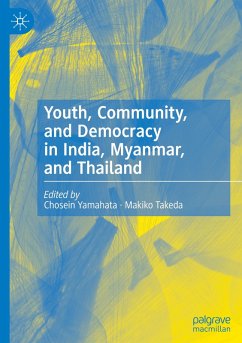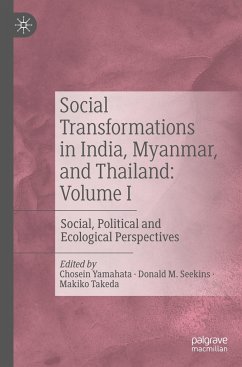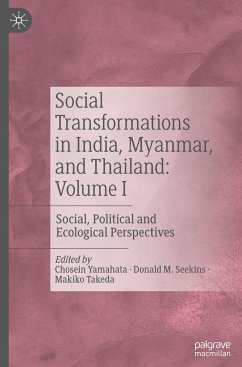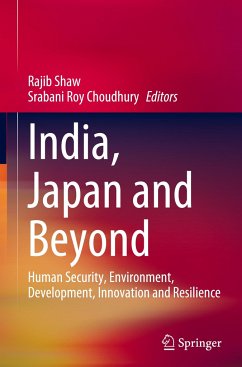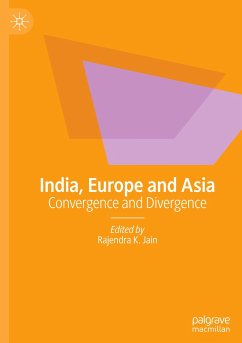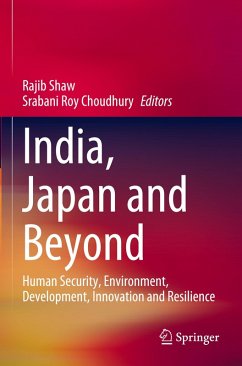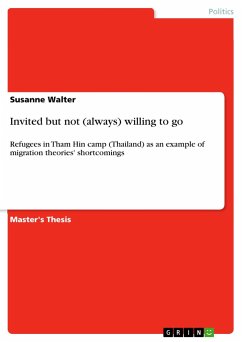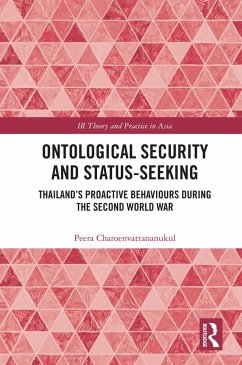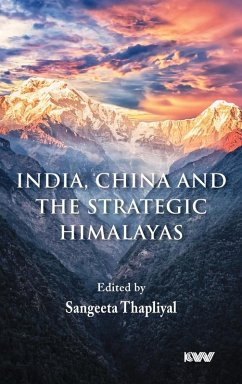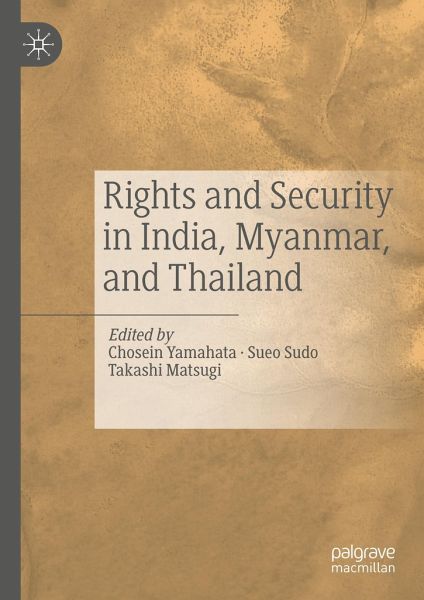
Rights and Security in India, Myanmar, and Thailand

PAYBACK Punkte
46 °P sammeln!
This book is centred on the role of the triangular interactions among communities, educational sectors, and academic diplomacy in facilitating peaceful societal change by evaluating the common challenges in India, Myanmar, and Thailand. It analyses urban poverty, religious freedom, ethnic diversity, women's rights, development and regional partnership, civil-military relations, and human security in democratic transition and explores in-depth the societal issues from local and international perspectives paying special attention to the protection of 'rights' and promotion of 'security' in these...
This book is centred on the role of the triangular interactions among communities, educational sectors, and academic diplomacy in facilitating peaceful societal change by evaluating the common challenges in India, Myanmar, and Thailand. It analyses urban poverty, religious freedom, ethnic diversity, women's rights, development and regional partnership, civil-military relations, and human security in democratic transition and explores in-depth the societal issues from local and international perspectives paying special attention to the protection of 'rights' and promotion of 'security' in these societies.
The book highlights that the continuous application of knowledge across borders and the promotion of international norms are essential tools in enabling social transformations from the bottom. In addition, the contributors promote further discussion on both the process and the outcome from action research projects that shape the lives of the local people and their communities. The book therefore contributes to the existing literature by offering additional insights into the societies of India, Myanmar and Thailand for policy makers, social innovators, researchers, development analysts and planners and the general public including students.
The book highlights that the continuous application of knowledge across borders and the promotion of international norms are essential tools in enabling social transformations from the bottom. In addition, the contributors promote further discussion on both the process and the outcome from action research projects that shape the lives of the local people and their communities. The book therefore contributes to the existing literature by offering additional insights into the societies of India, Myanmar and Thailand for policy makers, social innovators, researchers, development analysts and planners and the general public including students.



